Why Is My Light Switch Hot? 4 Common Causes
Find out more about this hot topic
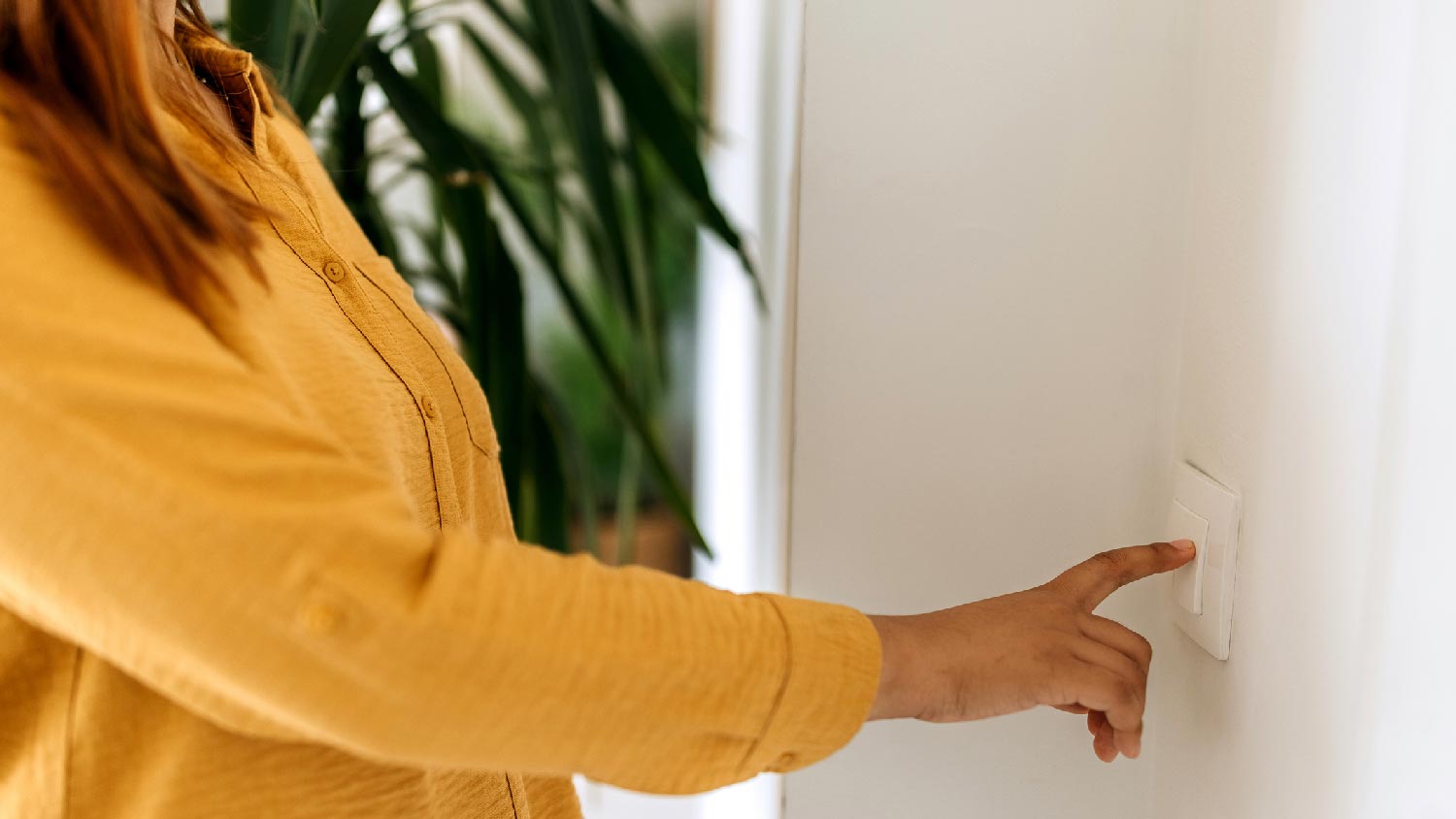

A hot light switch can be a sign of an electrical problem.
Hot light switches should be repaired or replaced as soon as possible.
If you aren’t confident working with electrical fixtures, hire a pro.
Walking into a room and flipping on a light switch is a matter of habit, but if you flip your light switch on and ask yourself, “Why is my light switch hot?” there could be a serious electrical problem. Hot light switches can be caused by several different issues, and it’s critical to identify and repair the problem before you run the risk of an electrical fire or other safety issues. As with any electrical problem, safety comes first—turn off power to the switch at the breaker when you encounter a hot light switch and call a licensed electrician if you aren’t experienced working with electrical fixtures. We break down some of the most common reasons for a hot light switch.
1. Overloaded Switch
If the fixtures connected to the light switch are demanding more power than the switch can provide, the switch can get overloaded, which may cause it to heat up. Using bulbs that are a higher wattage than the switch is designed for, having too many fixtures or bulbs connected to a switch, or using the wrong kind of bulb can all cause an overloaded switch.
How to Fix It
Find out how much power your switch is rated to provide, and only use fixtures and bulbs that won’t draw too much power. Try switching to low-wattage bulbs or adding another switch to support additional fixtures.
2. Damaged Switch
Age and regular use can cause light switches to go bad, leading to damaged components and potentially causing the switch to overheat. Older switches may not be able to handle the increased power demands of modern light fixtures, which can damage components or lead to shorts in the circuit.
How to Fix It
It’s better to install a new light switch than to try to repair a damaged older switch. A new switch may have improved built-in safety measures and is less likely to lead to shorts, overloaded circuits, or fire risks.
3. Faulty Wiring
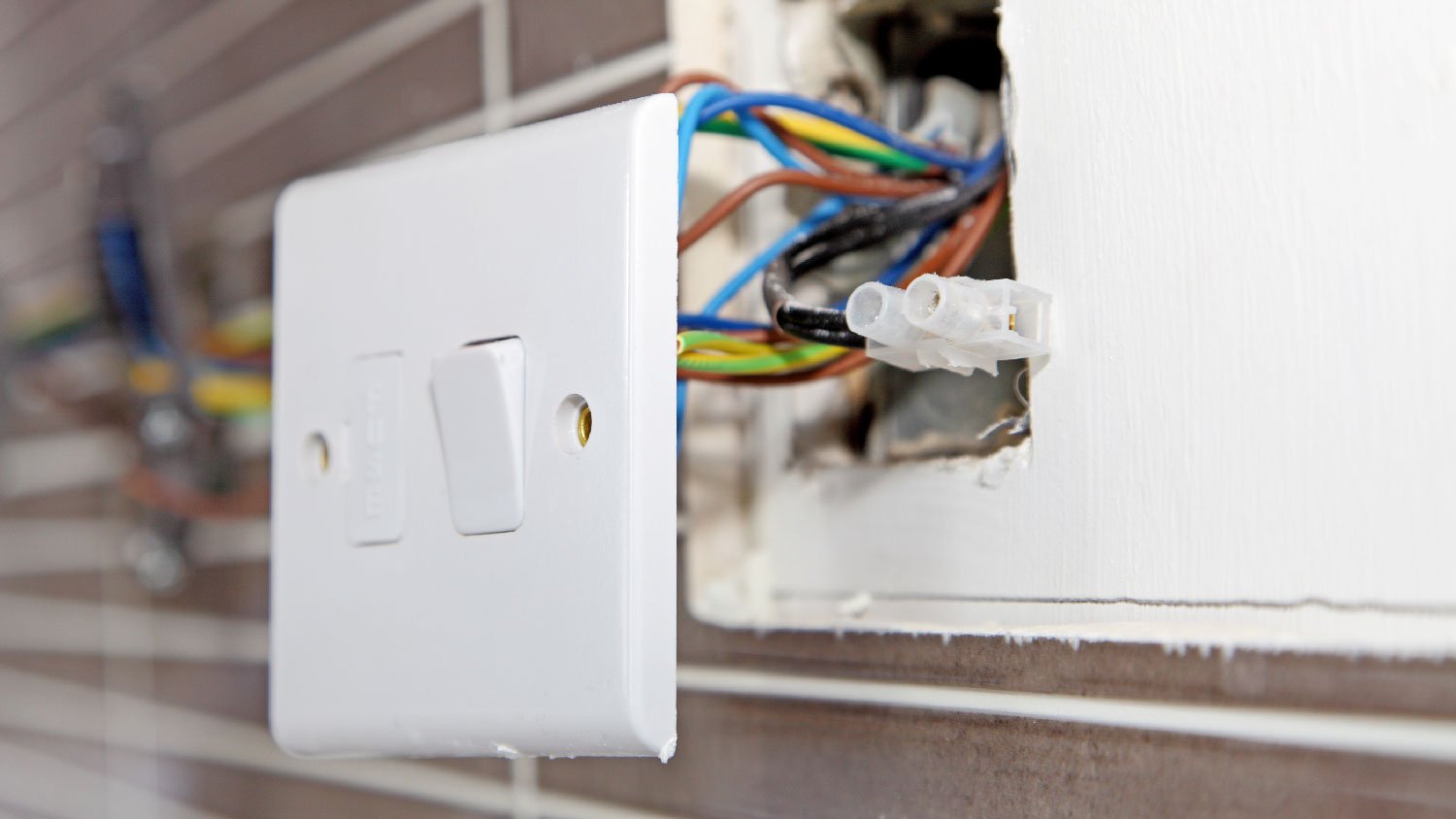
An improperly wired light switch or a switch with damaged wiring can cause the switch to feel hot. If electricity isn’t being conducted safely through the wires as intended, the electrical current can cause heat or sparks, leading to a serious fire risk.
How to Fix It
It’s safest to have a licensed electrician assess faulty wiring and repair it. The problem may be as simple as a loose connection, but is often a more complex issue that requires experience in safely rewiring the switch in accordance with electrical codes and safety measures.
4. Dimmer Switch
The type of light switch you have can also contribute to your light switch feeling hot. Dimmer switches naturally emit a small amount of heat, especially when the bulbs on the circuit are at maximum brightness. However, a dimmer switch that’s noticeably hot to the touch should be investigated—the circuit may be overloaded or it may have damaged components.
How to Fix It
Call a licensed electrician to determine if your dimmer switch is overloaded or has faulty components if it’s hot to the touch.
When to Call a Pro
If you don’t have the necessary knowledge and experience to replace or fix a light switch, call a local electrician to evaluate the problem and safely make any necessary repairs. A hot light switch can indicate a serious electrical problem, and an experienced, licensed pro can troubleshoot the cause and properly fix it, keeping you and your home safe.
How to Prevent a Hot Light Switch
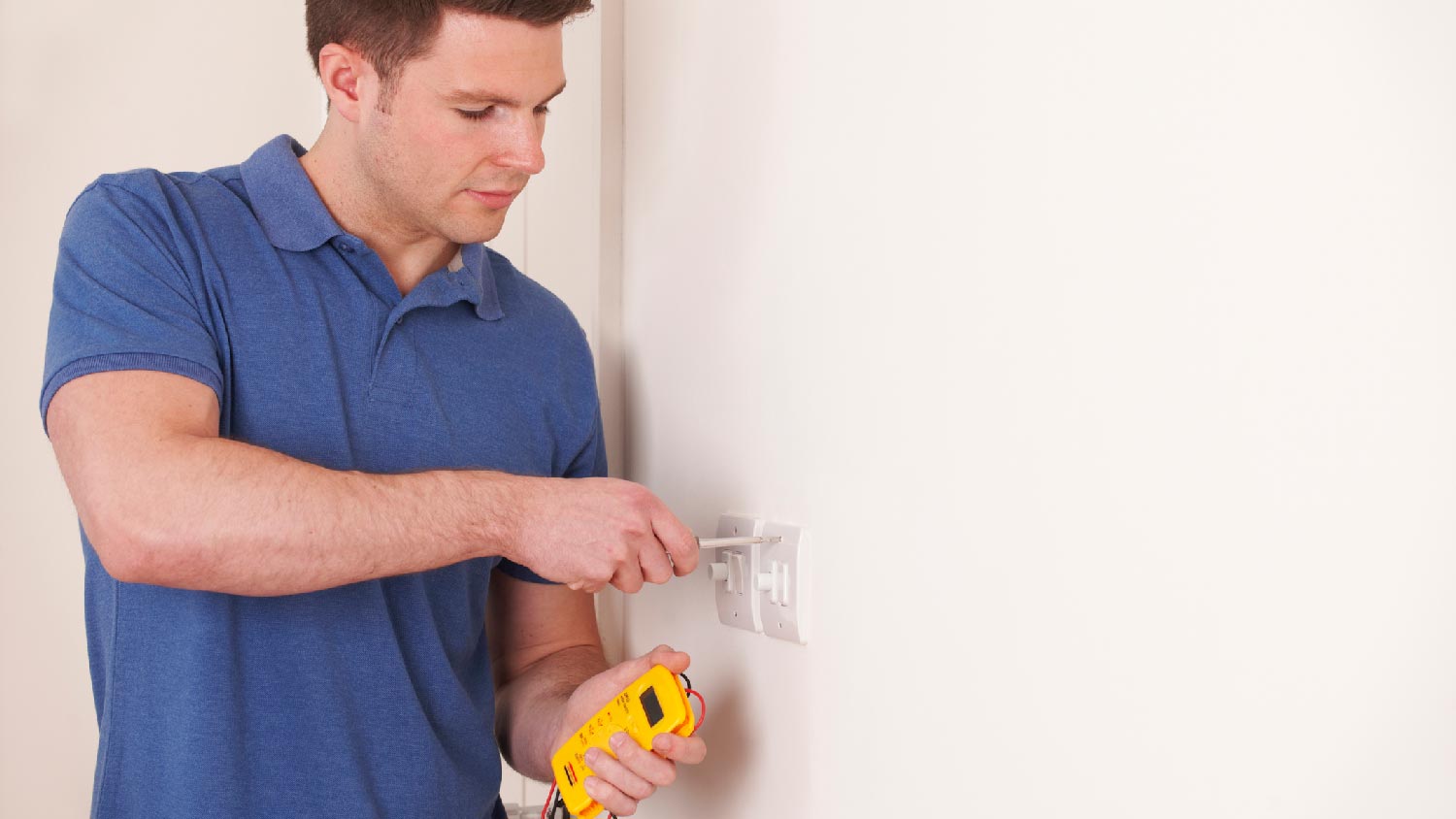
Keeping your home’s electrical system up-to-date with regular inspections and necessary updates to older components can help you avoid electrical problems like hot light switches. Newer fixtures and components may have additional safety measures to prevent shorts, overloads, and potential fire risks. It’s also important to know how much power a switch can provide and only use bulbs and fixtures within that limit.
Frequently Asked Questions
A faulty light switch can trip a breaker due to circuit overload or a short circuit. A faulty light switch may not always trip a breaker, so don’t use that as your only sign that something’s wrong. Always investigate the cause of a switch that isn’t working properly, feels hot to the touch, or is making unusual noises.
The cost to install a light switch averages between $100 and $200 when installed by a licensed electrician. You may pay extra for specialty switches or if any additional wiring is needed to safely install the switch. You can save on labor costs if you install the switch yourself, but you should only attempt this as a DIY if you have the experience to do it safely.

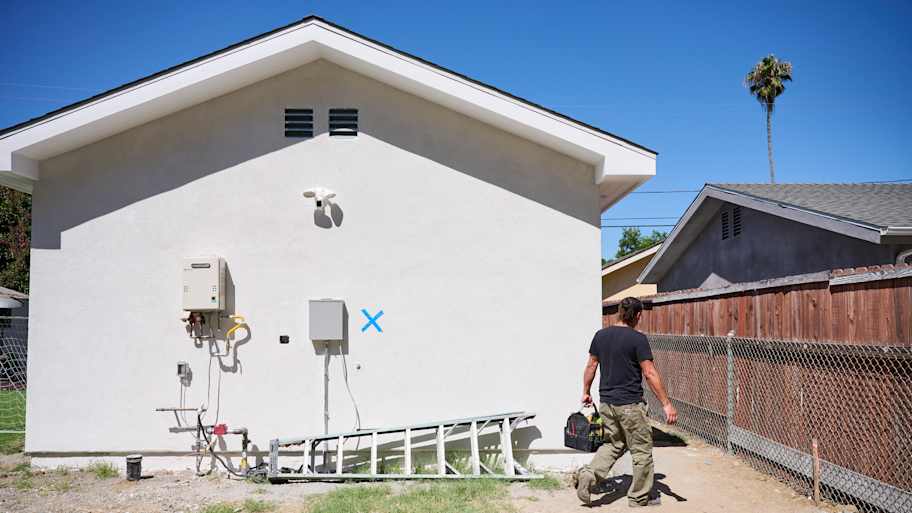
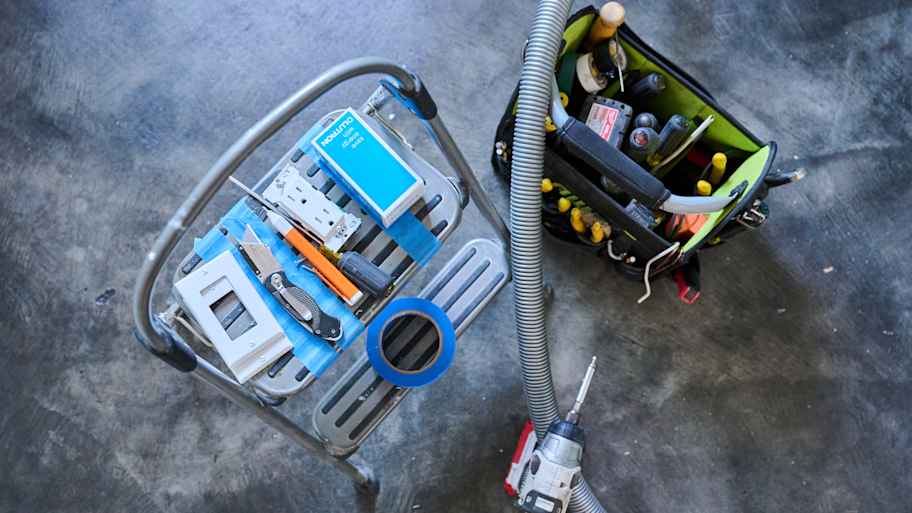
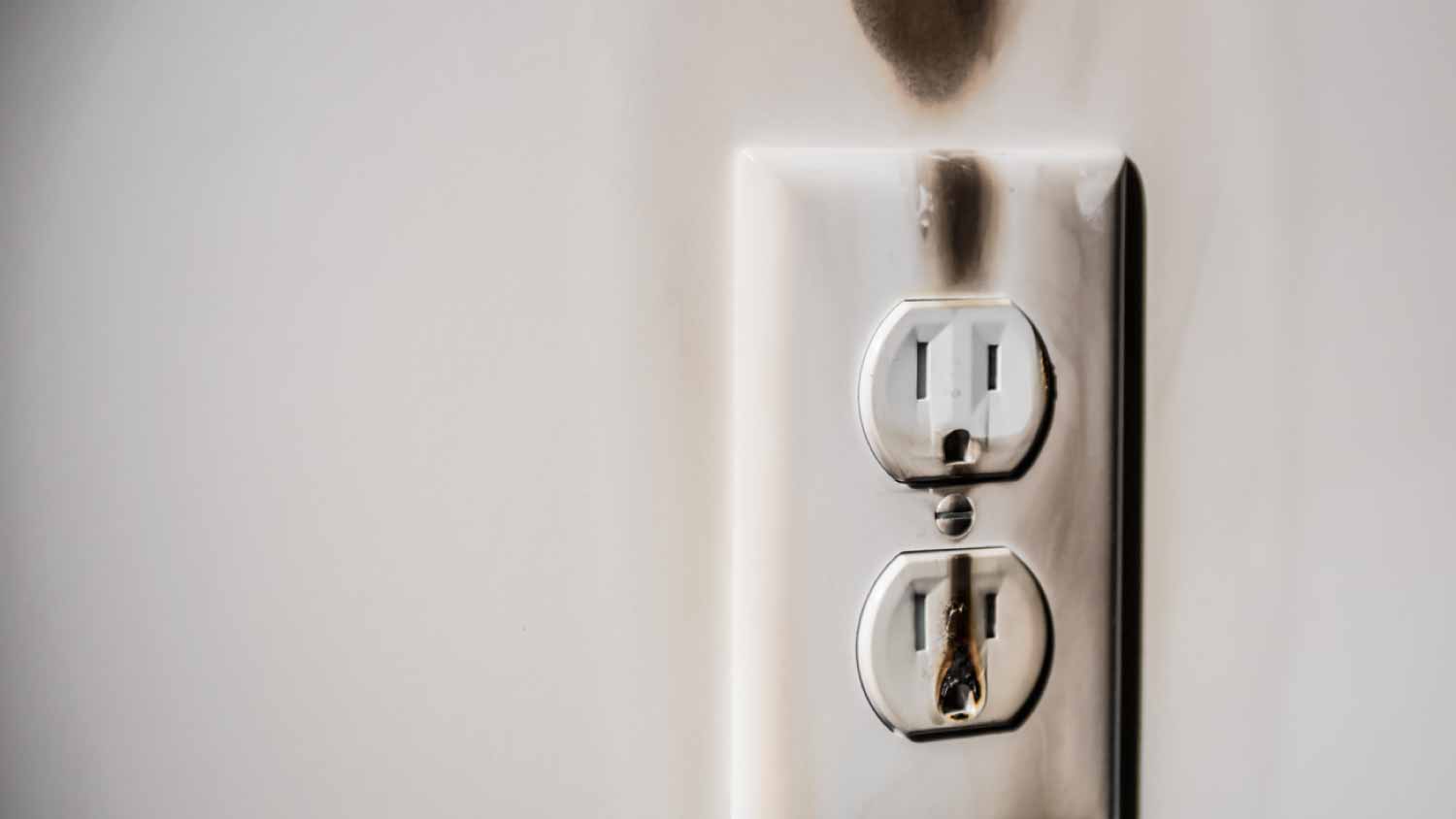

- Home Generator Repair
- Lamp Repair
- Electric Repair
- Generator Installation
- TV Antenna Services
- Emergency Electricians
- Commercial Electricians
- Attic Fan Installation
- Attic Fan Repair
- Exhaust Fan Installation
- Electric Inspectors
- Subcontractors
- Electrical Construction
- EV Charger Installer
- Chandelier Installation
- Doorbell Installation
- Bathroom Fan Installation
- Ring Installers
- Electrical Panel Upgrade










